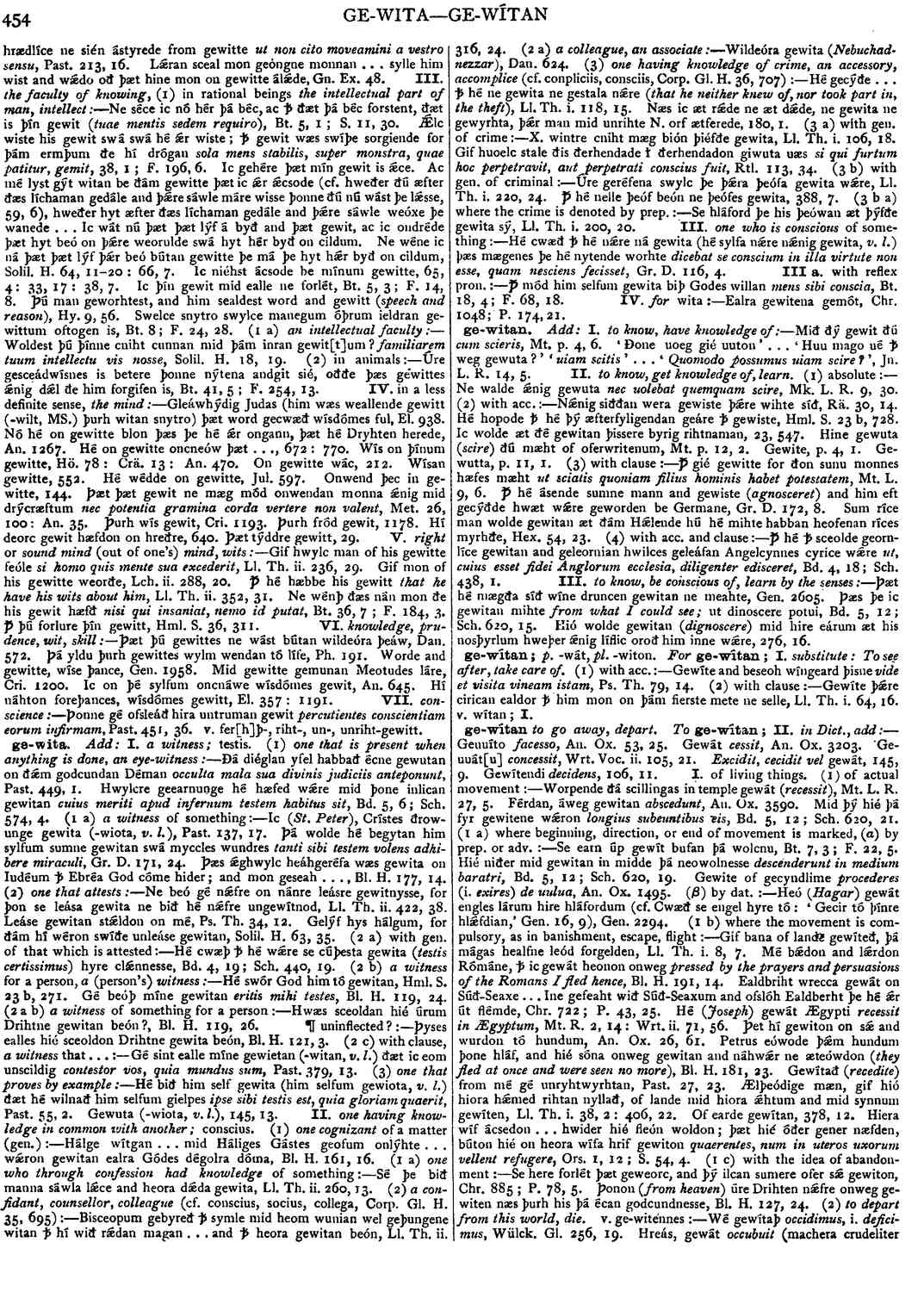ge-witan
-
Mið ðý gewit ðú cum scieris, Mt. p. 4, 6. 'Ðone uoeg gié uuton' . . . 'Huu mago ué ꝥ weg gewuta?'
'uiam scitis' . . . 'Quomodo possumus uiam scire?',
- Jn. L. R. 14, 5.
-
Ne walde ǽnig gewuta
nec uolebat quemquam scire,
- Mk. L. R. 9, 30.
-
Nǽnig siððan wera gewiste þǽre wihte síð,
- Rä. 30, 14.
-
Hé hopode ꝥ hé þý æfterfyligendan geáre ꝥ gewiste,
- Hml. S. 23 b, 728.
-
Ic wolde æt ðé gewitan þissere byrig rihtnaman,
- 23, 547.
-
Hine gewuta (
scire
) ðú mæht of oferwritenum,- Mt. p. 12, 2.
- Gewite, p. 4, 1.
- Gewutta, p. 11, 1.
-
Ꝥ gié gewitte for ðon sunu monnes hæfes mæht
ut sciatis quoniam filius hominis habet potestatem,
- Mt. L. 9, 6.
-
Ꝥ hé ásende sumne mann and gewiste (
agnosceret
) and him eft gecýðde hwæt wǽre geworden be- Germane, Gr. D. 172, 8.
-
Sum ríce man wolde gewitan æt ðám Hǽlende hú hé mihte habban heofenan ríces myrhðe,
- Hex. 54, 23.
-
Ꝥ hé ꝥ sceolde geornlíce gewitan and geleornian hwilces geleáfan Angelcynnes cyrice wǽre
ut, cuius esset fidei Anglorum ecclesia, diligenter edisceret,
- Bd. 4, 18; Sch. 438, 1.
-
Þæt hé mægða síð wíne druncen gewitan ne meahte,
- Gen. 2605.
-
Þæs þe ic gewitan mihte
from what I could see;
ut dinoscere potui,- Bd. 5, 12; Sch. 620, 15.
-
Hió wolde gewitan (
dignoscere
) mid hire eárum æt his nosþyrlum hweþer ǽnig líflic oroð him inne wǽre,- 276, 16.
Bosworth, Joseph. “ge-witan.” In An Anglo-Saxon Dictionary Online, edited by Thomas Northcote Toller, Christ Sean, and Ondřej Tichy. Prague: Faculty of Arts, Charles University, 2014. https://bosworthtoller.com/50535.
Checked: 0